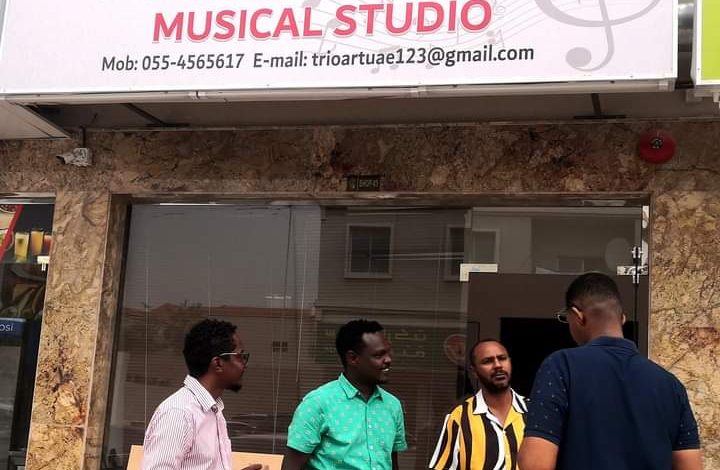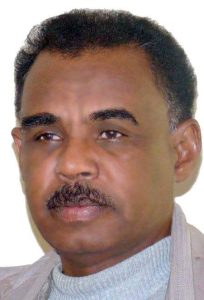Society & Culture
On “Trio Art”.. Musician Saad El-Din El-Tayeb… Artistic projects on the way

Sudan Events – Magda Hassan
Musician and pianist Saad El-Din El-Tayeb worked to establish the (Trio Art) studio in the Emirate of Ajman, where he settled after the war. Saad El-Din is currently working through the studio to implement several projects to advance the art of music, improve its teaching methods using modern means, and focus on its role and importance in building societies.
He is also working on developing a curriculum for some Sudanese “notes” and famous international melodies, with a different piano technique. He also seeks, with his interested academic colleagues, to establish rules for Sudanese musical forms in order to facilitate the development of a comprehensive curriculum for the basic themes of Sudanese heritage from a scientific perspective. He aims to contribute as much as possible through the art of music to developing human capabilities and stimulating creativity in all its forms.
Salah Shoaib wrote about musicians he knew about Saad El-Din El-Tayeb that it can be said that many Sudanese melodies, in addition to the idea of their first composer, witnessed modifications made by the musicians in order not to repeat the notes in the song or the musical piece. He believes that Saad El-Din El-Tayeb is from the middle generation of musicians who made valuable contributions in this regard. For more than four decades, he has participated in decorating musical works with his graceful fingers that create on the organ with major artists and musical groups such as Samandal and Aqd El-Jallad. Saad El-Din composed and arranged some melodies and supervised festivals, and participated with the orchestra of the Songs and Songs program, and this is considered one of the most important contributions in which Saad El-Din represented the spearhead of the musical performance alongside his capable fellow musicians.
“Since I knew Saad in the early second half of the eighties, he preferred to present his efforts in silence, and did not like the spotlight. With his patience and great love for musical work and teaching in the field, he remained persistent in presenting good artistic production, and appreciating and respecting the listeners’ ears. Saad was not only a skilled musician, music distributor and composer, but he also became a resource for the new generation of performing and studying musicians. His smile always preceded him.” Shoaib said.
Saad El-Din El-Tayeb El-Mahi Youssef was born in Hasahisa on November 14, 1957, and there he was influenced by the artistic family environment, as his father was a singer in the city. In high school, he was fascinated by the accordion until he became one of the first musical band of his friend, the late artist Mustafa Sayed Ahmed.
Later, he joined the Higher Institute of Music, and graduated in 1985, where he obtained a bachelor’s degree specializing in organ and piano. In addition to this, he had additional specializations related to conducting orchestras, composition, distribution, and teaching musicology in all its forms.
Saad has been a member of the Musicians’ Union and the Artists’ Union since 1981, and has worked hard to develop and improve performance through treatments, and to control the orchestra’s performance by supervising, organizing, and distributing hundreds of works by the giants of Sudanese art, including songs and musical compositions in various festivals, artistic and musical events. Saad El-Din also worked in the field of drama, composing the soundtrack for several TV series and films, and also contributed to implementing many of them live on stage. He also participated in the musical distribution of several international festivals.

Throughout his artistic career, Saad El-Din has composed and distributed many Sudanese songs that exceeded hundreds of songs, albums, and musical pieces by the giants of Sudanese art in distribution and supervision. He is currently working on laying new foundations for composing and formulating music in a modern style, composing small Sudanese pieces for the piano, organ for musical reading, and a training method for them. He also has special musical pieces that he composed and received praise, but he did not find enough time before to devote himself to producing them in a complete manner. Otherwise, he will present works of music by the late Barai Mohammed Dafallah, who he believes has accomplished a great deal in this field.



